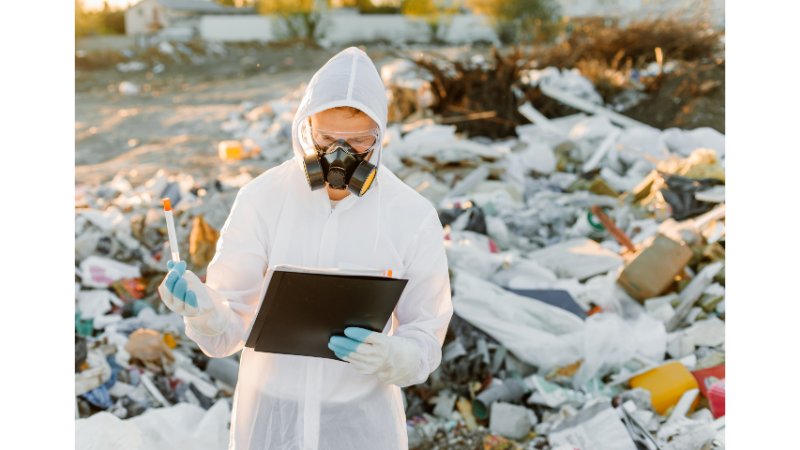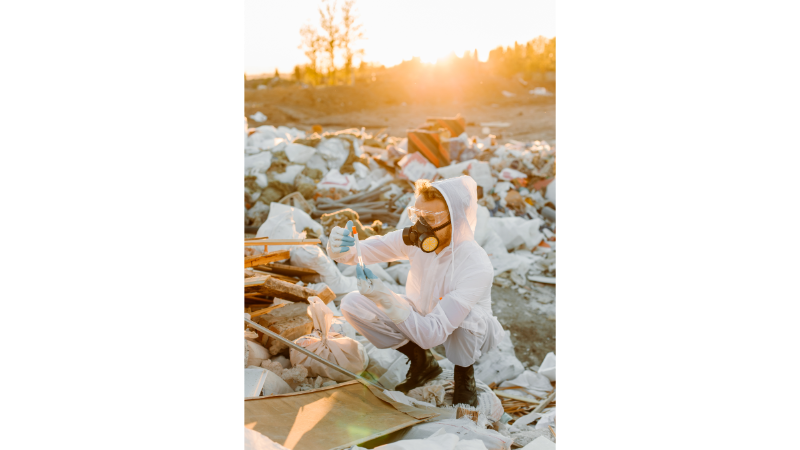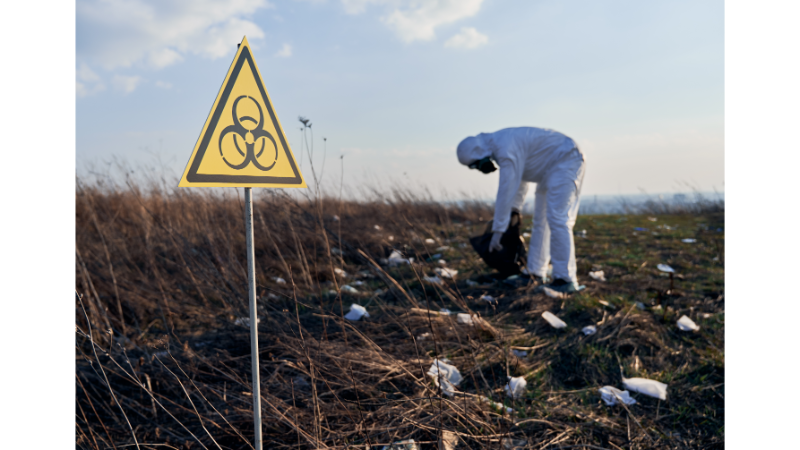Today, both businesses and individuals attach great importance to environmental management. In particular, organizations operating in industry, production and service sectors should attach great importance to waste management in order to minimize environmental impacts and contribute to the protection of natural resources. Proper sorting, collection, transportation and disposal of wastes generated as a result of industrial activities play a critical role not only in terms of fulfilling legal obligations, but also in terms of public health and environmental sustainability. In this process, non-hazardous waste management forms the basis of environmentally friendly practices. It is the key to leaving a more livable world to future generations.
With more than 25 years of experience, Burkasan is a pioneer in the field of waste management in Turkey. By offering integrated waste management solutions to prestigious brands, it both contributes to the protection of the environment and provides efficient services to businesses in accordance with legal requirements. Burkasan ensures that waste is managed in the most accurate way with special methods developed to minimize environmental impacts, while also contributing to the protection of natural resources and supporting the circular economy. Acting with environmental awareness, Burkasan collects non-hazardous waste and offers effective solutions at all stages up to recycling processes. Thus, it works for a sustainable future.
Table of Contents
- What is Non-Hazardous Waste?
- Importance of Non-Hazardous Waste Management
- Non-Hazardous Waste Management with Burkasan
- Recycling of Non-Hazardous Waste
- What is Hazardous Waste and How is it Managed?
- Bursa Non-Hazardous Waste Services
- Frequently Asked Questions (FAQ)
- Conclusion
What is Non-Hazardous Waste?
Non-hazardous wastes are types of waste that do not directly harm human health and the environment and can be recycled by controlled methods or disposed of under appropriate conditions. These wastes both occur as part of daily life and are frequently produced in industrial and production processes. Although they are not as risky as hazardous wastes, they can have negative impacts on the environment if not managed properly.

Non-hazardous wastes are generally classified in the following groups:
- Recyclable Materials: Materials such as plastic, paper, cardboard, glass and metal are directly included in recycling processes.
- Household and Office Waste: Organic waste, packaging waste and unused materials generated in daily life.
- Waste from Industrial Production: Production residues or packaging waste from production processes that do not directly harm the environment.
Non-hazardous wastes must be separated at the source, included in recycling systems or disposed of by environmentally sensitive disposal methods in order to prevent harm to the environment. Otherwise, these wastes lead to environmental pollution and waste of natural resources over time.
Therefore, waste management processes include the effective collection, transportation, recycling and disposal of non-hazardous waste. Proper waste management contributes to both environmental protection and economic value creation. It is especially important for industrial organizations and large-scale enterprises to carry out waste management processes in accordance with environmental legislation.
Importance of Non-Hazardous Waste Management
Non-hazardous waste management is of great importance in terms of protecting the environment and using resources more efficiently.
With an effective non-hazardous waste management:
- Natural resources are protected. Thus, waste is prevented.
- It increases the recycling rate and brings waste back into the economy.
- Businesses support production by reducing their environmental impact.
- Compliance with environmental legislation is ensured by ensuring compliance with legal obligations.
All these processes allow businesses that act with environmental awareness to contribute to both society and the economy. Waste management prevents environmental pollution. It uses resources more efficiently by recovering wastes with economic value.
Non-Hazardous Waste Management with Burkasan
Burkasan offers integrated solutions to support businesses to manage their non-hazardous waste in an environmentally friendly manner. It provides expert services in the correct sorting, collection, recycling and disposal of nonhazardous waste.

- Waste Segregation and Collection: Wastes are correctly separated at the source and collected safely. This process is critical for efficient recycling.
- Recycling Processes: Recycled wastes are processed in modern and environmentally friendly facilities. Thus, the wastes are recycled back into the economy.
- Disposal Services: Wastes that cannot be recycled are disposed of by safe disposal methods in a way that does not harm the environment.
- Consultancy Services: Provides professional consultancy services for businesses to comply with legal regulations. In this way, businesses both fulfill their legal obligations and create sustainable environmental policies.
Burkasan facilitates the waste management processes of businesses. In doing so, it supports the realization of environmentally friendly practices. It contributes to the protection of the environment with the professional solutions it offers. It also enables businesses to make sustainable investments for the future.
Recycling of Non-Hazardous Waste
Recycling nonhazardous waste makes efficient use of resources and reduces environmental impacts. The recycling process consists of the following steps:
- Waste Collection: Non-hazardous waste is collected safely from the point of generation.
- Sorting: Waste is sorted by type and materials such as plastic and glass are processed separately.
- Processing and Recycling: Waste is recycled in modern facilities.
- Reuse: Uses recycled materials in the production of new products.
What is Hazardous Waste and How is it Managed?
Hazardous wastes are types of waste that can harm the environment and human health. Chemical wastes, medical wastes and industrial hazardous substances are included in this category. Hazardous waste management:

- Special collection methods are used.
- Safe transportation processes are applied.
- Disposal methods in accordance with the legislation are preferred.
Bursa Non-Hazardous Waste Services
Burkasan provides specialized waste management services to businesses in Bursa. These services include
- Professional Waste Management Solutions
- Recycling and Disposal Processes
- Waste Reporting in Compliance with Legislation
- Environmental Consultancy Services
Thanks to these solutions, businesses in Bursa fulfill their environmental obligations. It also contributes to sustainability goals.
Frequently Asked Questions (FAQ)
What is non-hazardous waste?
Waste that is not harmful to the environment and human health and can be recycled or disposed of safely.
How is non-hazardous waste managed?
Waste is separated at source and collected safely. It is then included in recycling processes or disposed of in accordance with legislation.
How are non-hazardous wastes disposed of?
Wastes that cannot be recycled are disposed of in accordance with environmental legislation. This process is carried out in a way that does not harm nature.
Why should non-hazardous waste be separated?
Proper sorting ensures efficient recycling processes and prevents environmental pollution.
Is non-hazardous waste management a legal obligation?
Yes, waste management in Turkey is subject to legal regulations set by the Ministry of Environment and Urbanization. Businesses are obliged to comply with these rules.
What methods does Burkasan use in the recycling process?
In modern and environmentally friendly facilities, recycling is achieved by using advanced technology methods suitable for the type of waste.
What are the environmental impacts of non-hazardous waste?
Non-hazardous wastes that are not managed properly cause environmental pollution and depletion of natural resources in the long term.
Why is non-hazardous waste management important?
It is of great importance in terms of protecting natural resources and preventing environmental pollution. It also plays a key role in establishing sustainable environmental policies.
How can businesses make their waste management processes more efficient?
Separation at source and regular waste tracking make processes more efficient. Active participation in recycling processes and professional consultancy services also increase efficiency.
What are the advantages of working with Burkasan?
It offers reliable solutions to businesses with its expert team and modern facilities. It ensures full compliance with legislation. Contributes to the development of sustainable solutions through environmentally friendly practices.
Conclusion
In conclusion, Waste management is not only an environmental necessity but also a strategic tool for business sustainability. Proper segregation at the source plays a vital role in protecting the environment. Efficient recycling and legally compliant disposal methods are equally important. When managed with professional expertise, this process supports the preservation of natural resources. It also facilitates businesses’ transition to environmentally responsible production models.
Burkasan plays a pioneering role in the waste management sector with its technology-driven infrastructure and environmentally conscious service approach. Through integrated solutions offered across Turkey, it helps businesses reduce their environmental impact. It also supports them in achieving their sustainability goals.
From consultancy to disposal systems, Burkasan implements reliable, effective, and eco-friendly practices at every stage.
With its advanced equipment, up-to-date regulatory knowledge, and expert team, Burkasan is a trusted partner. It is especially reliable in the safe management of non-hazardous waste. It ensures legal compliance while minimizing environmental risks. This helps businesses meet their environmental responsibilities with confidence.
If you want to review our other articles, you can browse our blog page.

